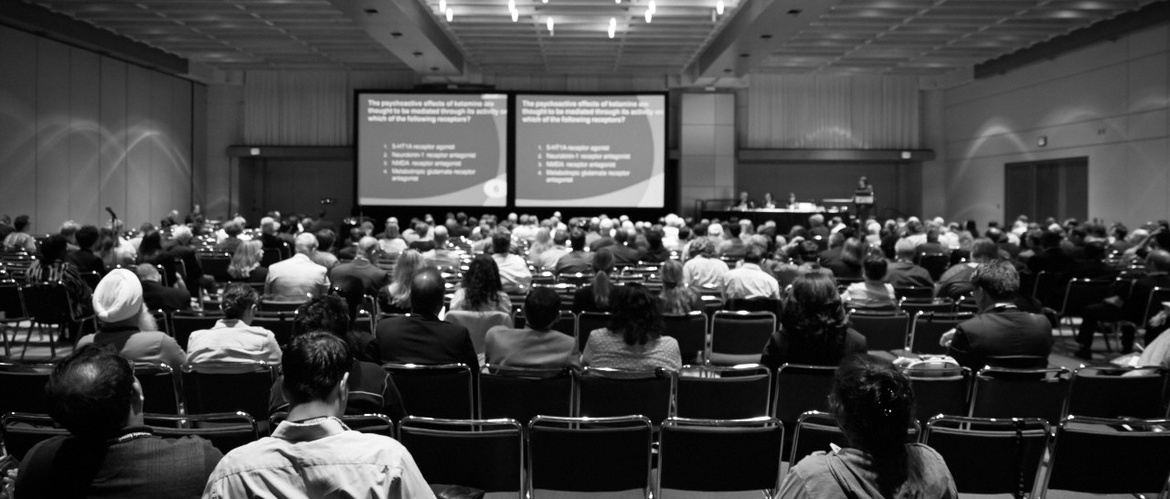
Choose a channel
Check out the different Progress in Mind content channels.

Progress in Mind

It is unusual to come across patients who present only with problems of alcohol use. Patients almost always have other comorbidities, such as other substance misuse, and/or affective disorders such as depression or PTSD. The links between these disorders were addressed by two speakers in Saturday’s APA session ‘Alcohol use disorders and PTSD: New findings, new challenges’. Firstly, Dr Kerry Ressler, from Emory University, Atlanta, USA discussed the neurobiological links between trauma and alcohol misuse. Then Professor Kathleen Brady, of the Medical University of South Carolina discussed some of the treatment strategies available for these co-morbid conditions.
Dr Ressler’s recent work has focussed on a population of patients presenting for emergency care in inner-city Atlanta. These patients have high rates of poverty and exposure to violence and trauma, 30% also report substance abuse. Patients interviewed in the hospital self-reported their drinking for the past year, and this was found to be highly predictive of PTSD symptoms in the month following a trauma. This correlation between alcohol intake and PTSD symptoms remained even when the data were controlled for the presence of depression, prior trauma symptoms and trauma severity. Thus, alcohol use appeared to make it more difficult for these patients to recover from trauma. On the other hand, prior trauma, both as an adult and a child are strongly predictive of subsequent alcohol misuse. Thus, both these co-morbid conditions appear to reinforce each other.
Dr Ressler discussed neural circuits that might underly this cycle of reinforcement. The amygdala is the final common pathway for the fight/flight threat response, with regulatory links to and from the hippocampus and the prefrontal cortex. Some of the same neural circuits involved in this fear response are also involved in the activation of excitement and addictive behaviours. He proposed that when the amygdala is chronically stressed, its activity is likely to be biased towards maladaptive coping responses. These may result in hypersensitivity of the fight/flight response, and PTSD-type problems. But they may also produce habitual approach and appetitive behaviours, leading to alcohol or substance misuse or addiction. Research is now accumulating in different fields – from studies of neural circuitry in animals, scanning in humans, and genome-wide association studies – that appear to demonstrate interesting links between these two apparently distinct behavioural responses. These may help explain the common co-morbidities between trauma and alcohol misuse.
Prof Brady echoed Dr Ressler’s assertion that there are common neurobiological pathways involved in the pathophysiology and possibly the treatment of both alcohol misuse and PTSD. Moreover, the co-morbidity worsens the prognosis for both conditions. In the past, treatment of co-occurring PTSD and alcohol misuse has been highly problematic. This was because patients with PTSD would be referred on to manage their alcohol dependence as a precursor to treatment of PTSD. However, they would be suffering so badly from the effects of trauma that they would drop out of any alcohol treatment programme, and their conditions remained unmanaged. In response to this, psychological treatment programmes were developed to target symptoms of both PTSD and alcohol misuse at the same time. There are a number of treatment options for this. The question now is, which treatment is the right one for the patient at a particular point in their illness, and how can these treatments be individualised effectively.
There are also some promising pharmacotherapies for treating these comorbid disorders. A key message Prof Brady had here was that often patients are treated for their PTSD, possibly with an SSRI, but it is also worth considering adding in other pharmacotherapies in an attempt to manage the alcohol misuse concomitantly. Whatever treatment this patient receives – psychotherapy or pharmacological therapy – it is now clear that it is crucial that their PTSD is managed effectively. This is because when symptoms of PTSD improve, the alcohol misuse will almost always also improve. On the other hand, improvements in substance abuse alone do not generally lead to a relief from PTSD symptoms. Dr Brady concluded that there are promising developments in both psycho- and pharmacotherapies for co-occurring PTSD and alcohol use disorder, which will benefit from the identification of new neurobiological targets and combination therapies.
Our correspondent’s highlights from the symposium are meant as a fair representation of the scientific content presented. The views and opinions expressed on this page do not necessarily reflect those of Lundbeck.